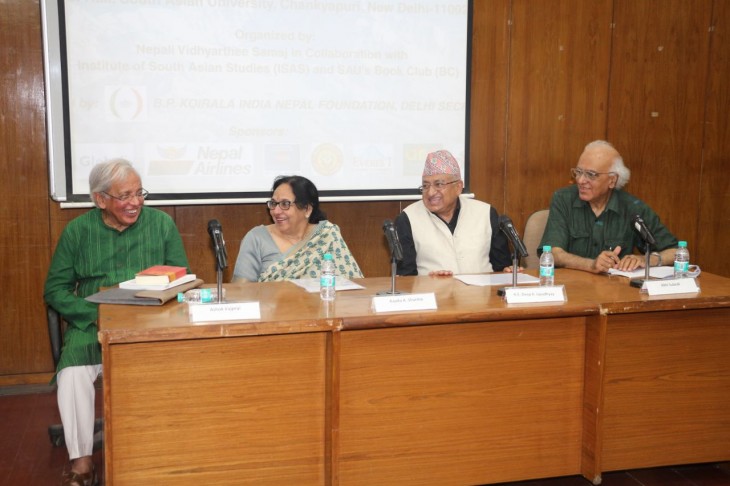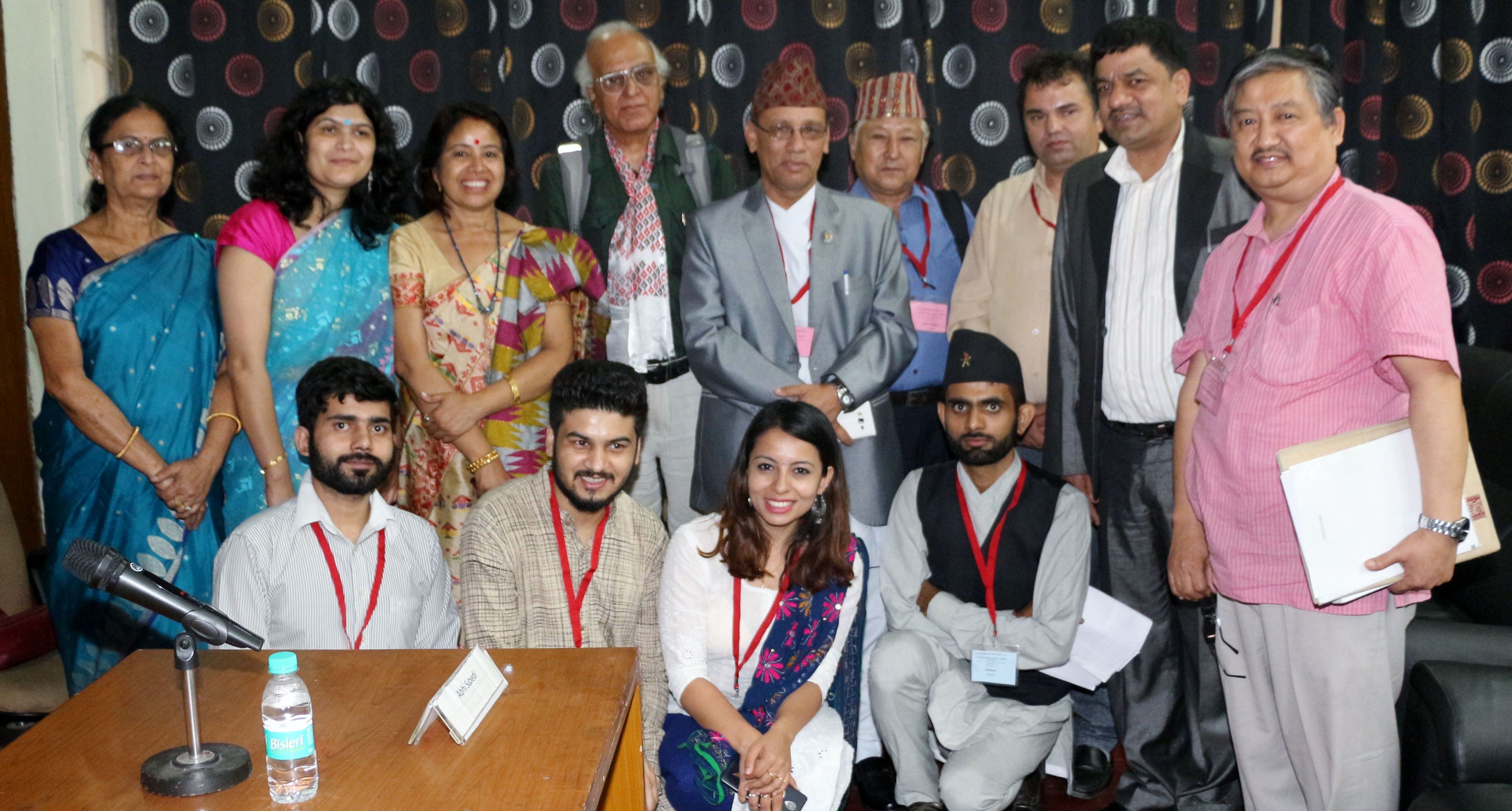
An International Poetry Festival “Nepal in South Asia” was successfully held in South Asian University, New Delhi, on Sunday May 21, 2017. This one-day festival was part of the South Asian University’s social science research project “The Poetic Imaging(s) of South Asia” led by Dr Mallika Shakya, and it was supported by the BP Koirala Foundation under the Nepalese Embassy in Delhi. Two SAU student bodies – Nepali Vidhyarthi Samaj and the university Book Club – played key role in organizing this festival. The programme began with Dr Kavita Sharma, President, SAU welcoming all participants. She shared her vision of South Asia and underscored the importance of poetic exchanges between countries in the region.
His Excellency Deep Kumar Upadhyay, the Nepali Ambassador to India spoke few words of encouragement. The festival proceeded to explore poetic imaginings in Nepal and India through a conversation between Professor Abhi Subedi, renowned professor, writer and critic from Nepal with Shri Ashok Vajpeyi, poet and former Chairman of the Lalit Kala Akademi of India.
Featured were panels on Southasiaism, first on the various Southasian translations of Pablo Neruda’s poems and later on feminist writings in various languages of South Asia: Bangla, Daree, Hindi, Urdu, Sinhala, Tamil, Telugu and Nepali. Shri Sarubhakta, Chancellor of the Nepal Academy of Music and Drama delivered the keynote address on the contemporary context of poetry in Nepal. The poetry festival brought together several poets and literary workers from both sides of the border. Rajendra Bhandari, Daibaki Timilsina, Raja Punaini, Sukul Pradhan, Ramlal Joshi, Bhupendra Adhikari, Nabaraj Lamsal, Vishnu Gurung and Jogen Dargal spoke on Nepali poetry and recited poems. Last but not the least, more than twenty young poets who came from different parts of Nepal and India also recited their poems. The festival was supported by several Nepali organizations in Delhi. SAU students from all eight countries of South Asia actively participated in this festival.
